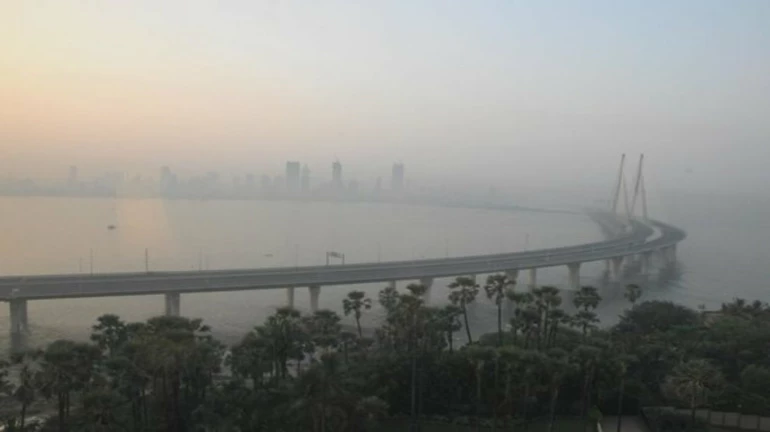
The Brihanmumbai Municipal Corporation (BMC) has introduced new measures to tackle air pollution in Mumbai. The move comes as the city's air quality is constantly degrading. BMC announced these standard operating procedures (SOPs) in a press release on Monday, October 7.
A review meeting was held at BMC headquarters the same day to discuss air pollution control by the Municipal Commissioner Bhushan Gagrani. Senior officials, including additional municipal commissioners Dr. Ashwini Joshi, Dr. Vipin Sharma, and Dr. Amit Saini, as well as deputy and assistant police commissioners were also a part of the meeting.Measures for Covering Construction Sites:आगामी विधानसभा निवडणुकीची पूर्वतयारी, बृहन्मुंबई क्षेत्रातील वायू प्रदूषण नियंत्रणासाठी उपाययोजना तसेच बृहन्मुंबई महानगरपालिकेशी संबंधित विविध विषयांच्या अनुषंगाने जिल्हा निवडणूक अधिकारी तथा बृहन्मुंबई महानगरपालिका आयुक्त श्री. भूषण गगराणी यांनी आज आढावा बैठक घेतली.
— माझी Mumbai, आपली BMC (@mybmc) October 7, 2024
अतिरिक्त… pic.twitter.com/bek1CrbkWP
Projects over 70 meters in height must install sheet or metal cladding of at least 35 feet.
For projects over one acre, the perimeter must be covered with sheeting or metal cladding at least 25 to 35 feet high.
Construction materials like sand or soil should be stored under tarpaulin in covered areas.
Structures under construction should be covered with tarpaulin, jute, or green fabric, whereas demolition sites will be fully covered and watered regularly.
Vehicles transporting materials must be fully covered to prevent spills.
Water sprays must be used when transporting construction materials.
The equipment generating dust must be continuously sprayed with water.
At every construction site, there should be a facility for washing vehicle wheels.
Main roads should be cleaned daily by water spraying or vacuum sweeping.
Every project site should have CCTV cameras placed from all sides.
Dumping on public roads, paths, or open spaces is strictly prohibited.
Open burning of garbage, especially at dumping grounds, will be banned.
The use of firewood and similar materials for cooking at these sites will be prohibited.
Contractors should also install sensor-based air pollution monitors. If pollution exceeds safe limits, immediate action must be taken. BMC officials will have access to these monitoring systems.
Contractors working on infrastructure projects within civic jurisdiction must now submit a report called EMP to the BMC.
The BMC’s environment department has prepared a template to make the reporting process easier. The EMP will contain a list of all the sources of pollution in a particular project.
The contractors will also need to include steps on mitigating them. The agency overseeing the project will have to assign a person to implement the plan.
This report is to be submitted to the executive engineer of the relevant civic department. The initial deadline for submitting the plan is October 15, with a possible extension of 30 days.
Fines of INR 1,000 will be imposed for missing the deadline. If the agency continues to delay, a stop-work notice will be issued.
In addition, a special squad of two ward engineers, a police officer, and a marshal will be formed in each ward. The squad will also receive a vehicle. A senior official from the corresponding civic ward will serve as the team leader.
The number of teams will be decided by the size of the ward: two teams will be assigned to small wards, four teams to medium wards, and six teams to large wards. Enforcement teams will visit construction sites to check if the project is following the rules. If violations are found, stop-work notices will be issued.AQI Levels:
These rules are part of a strategy to reduce air pollution as Mumbai's air quality worsens during the winter months. On October 1, just one day after the monsoon ended, air quality in areas like Mulund, Colaba, and Worli dropped by more than 50%.On October 7, the Central Pollution Control Board's (CPCB) dashboard showed that Mumbai's overall air quality index (AQI) was moderate with 121.
However, the AQI readings in many neighbourhoods fell into the poor and very poor range. With an AQI of 311, Kandivali came in first, followed by Mazgaon with 225, Siddharth Nagar (Worli) with 305, and Bandra (East) with 250.





